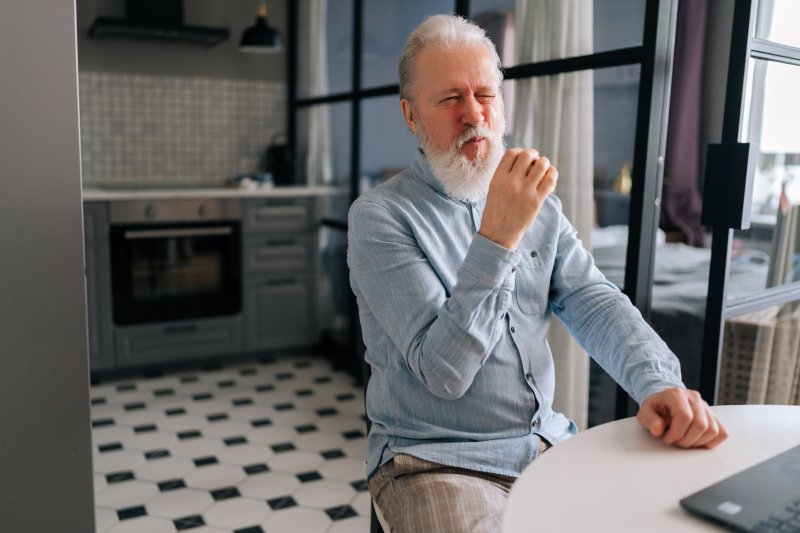
It almost goes without saying (at least for most folks) that dentures alter meals. Isn’t one of their main roles to make food easier to chew and break down? Still, only a few know that dentures affect your sense of taste as well. These prosthetic teeth can change a dish’s flavor – often for the worse – in some select situations. As for how that’s possible, just keep reading and let your Ledgewood dentist explain.
How Can Dentures Affect Your Sense of Taste?
While dentures may seem natural, they can change your sense of taste in ways natural teeth don’t. This effect often results from one (or more) of the following:
Poor Fitting
If you secure your dentures with adhesives, be careful. Those creams can affect taste sensations.
The issue is that many denture creams have a distinct flavor. If you apply too much, you may experience a “metallic” taste that disrupts the feeling of foods and drinks. That result could even cause a temporary loss of taste sensations.
A Covered Palate
Some dentures alter your sense of taste by covering your palate. When that happens, a meal you’d expect to be flavorful can seem rather bland.
Dentures that have base plates are most prone to this issue. These devices tend to cover your mouth’s palate (i.e., its roof), which houses many of your taste buds. Their base plates thus reduce your ability to taste foods and drinks.
Food Buildup
Dentures slowly gather food deposits, stains, and other debris as they help you chew. When these elements build up enough, they can overwhelm your senses and trigger taste loss.
The so-called “food deposit” problem occurs mostly in low-cost dentures. Since these kinds use porous and low-quality plastic, they pick up various flavors and odors. The result is a slew of breakfasts, lunches, and dinners that don’t taste like they should.
What Can You Do to Fix the Issue?
To keep dentures from harming your sense of taste, follow these helpful tips:
- Clean Your Dentures – With post-meal rinses and nightly brushing, your dentures won’t gather as many food deposits. They’ll then affect your sense of taste less.
- Get Implant Dentures – If your regular dentures alter tastes too much, switch to implant-based models. These kinds lack a base plate and don’t cover your palate.
- See a Dentist – Consult your dentist about the taste problem. They can check your mouth, assess the root cause, and offer reliable treatment.
Your sense of taste will change with time, but you don’t need to let dentures worsen that issue. Consider the facts and tricks above – they’ll help your new teeth savor your meals.
About the Practice
McCleaster Family Dental is based in Ledgewood, NJ. Led by Dr. McCleaster, our practice takes pride in offering modern and comprehensive dental care. Whether it’s preventive, cosmetic, or restorative smile work, we’ll do everything possible to make your grin healthy and gorgeous. Our office can even replace missing teeth with quality dentures and similar appliances. For more details or to book a visit, you can reach us on our website or by phone at (973)-598-0800.
